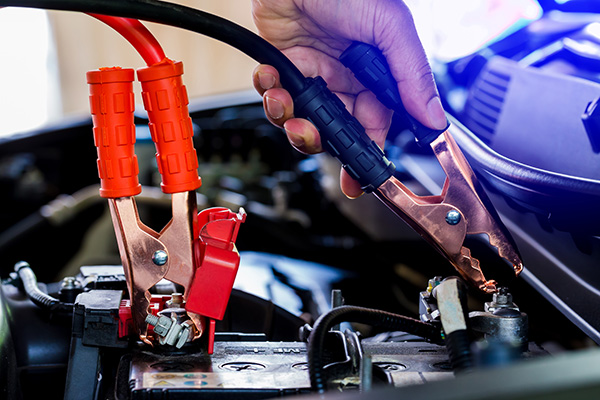
There’s nothing more frustrating than getting into your car, turning the key or pressing the start button, and… nothing happens. Whether it’s a slow crank, silence, or clicking noises, a no-start condition is always inconvenient—and often stressful. While there are many reasons a vehicle might not start, a few common culprits are responsible for most issues.
Knowing what might be causing the problem and taking the necessary steps can help you stay calm and get your vehicle back on the road quickly.
Dead or Weak Battery
The most common reason a car won’t start is a dead battery. If you turn the key and hear nothing or only a soft clicking sound, your battery might not have enough power to crank the engine. Batteries can die suddenly or slowly weaken over time. Cold weather, corrosion on the terminals, or simply age can all contribute to battery failure.
In many cases, a jump-start can get your vehicle going again. But if the battery continues to drain or struggles to hold a charge, it’s time for a replacement. Regular battery checks can help identify early warning signs like slow cranking or dim interior lights.
Faulty Starter Motor
The starter motor is responsible for physically turning the engine over when the ignition is engaged. If you hear a clicking sound or a loud grinding noise but the engine doesn’t turn, the starter could be the issue. Starter motors can wear out due to age, electrical problems, or even internal mechanical damage.
Unlike batteries, starter issues can’t be temporarily fixed with a jump. If your starter has failed, it will need to be replaced by a technician. Early symptoms, such as intermittent starting or a single loud click when turning the key, should not be ignored.
Ignition Switch Problems
If your dashboard lights come on but the engine doesn't respond at all when you turn the key or push the start button, you may be dealing with a faulty ignition switch. This component sends power from the battery to the starter and other systems when you start the car.
Worn contacts inside the ignition switch can prevent power from reaching the necessary components, leaving you stranded. In some cases, jiggling the key or turning it multiple times might work temporarily, but this is only a short-term workaround. Professional replacement is the long-term fix.
Fuel Delivery Issues
A functioning fuel system is essential for starting your car. If your engine cranks but doesn’t start, it could mean that fuel isn’t reaching the combustion chamber. A failing fuel pump, clogged fuel filter, or empty gas tank are all potential causes.
Fuel pump issues often become more noticeable when your car stalls or has trouble accelerating. If you suspect a fuel-related issue, it’s best to have a technician perform a pressure test and inspect the fuel system. While some causes are simple, such as an empty tank or a dirty filter, others, like pump failures, require more complex repairs.
Faulty Engine Sensors
Modern vehicles rely on sensors to monitor engine functions and deliver the right amount of fuel and spark during startup. If a sensor like the crankshaft position sensor or camshaft position sensor fails, it can prevent the engine from starting.
These sensors are essential for the engine control unit (ECU) to coordinate ignition timing and fuel injection. When they malfunction, your vehicle might crank but never actually start. In some cases, the check engine light may already be on, or you may notice rough running before the no-start condition occurs.
Diagnosing sensor issues typically requires a scan tool to read stored fault codes, which can guide the repair process.
What to Do When Your Car Won’t Start
The first thing to do is stay calm and observe what’s happening. Is the dashboard lighting up? Do you hear clicking or cranking? Are there any smells or warning lights?
If you’re familiar with jump-starting a vehicle and suspect the battery, it’s worth trying that first. If that doesn’t work or if the issue seems more serious, it’s time to call for professional assistance. Avoid repeatedly cranking the engine, as this can drain the battery further or damage components like the starter.
Having your car towed to a trusted repair shop is the safest course of action, especially if you’re unsure of the cause.
Get Reliable Diagnostics at Taylormade Automotive in San Francisco, CA
At Taylormade Automotive, we know how frustrating a no-start condition can be. Whether it's a simple battery issue or a more complex electrical fault, our experienced technicians can quickly identify the problem and get you back on the road.
We utilize advanced diagnostic tools to pinpoint failures and clearly explain your repair options, ensuring there are no surprises. If your car won’t start, don’t wait.
Schedule a visit with Taylormade Automotive today and get the answers you need fast.